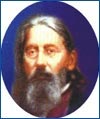Defective oxidation destruction of red corpuscles, lessened temperature.
Septic form of scarlet fever.
Contact Injuries etc.
Touch: Pressure: bandage: Must wipe the eyes: Scratching: AFter a fall:.
Skin
Skin from a blue-grey violent or bronze color to real black, skin brown tense, hard.
Itching smarting, mostly of thighs and axillae, when warm at night.
bluish-black eruption. Scarlet fever.
Erysipelatous bed-sores, left shoulder, sacrum or both hips centre covered with dry, bloody incrustations; black hard on sacrum. Typhus.
pustulous ecthyma.
Water-shaped excrescences on the skin.
Stages and States
Melancholy; congestion to head and chest; nosebleed. Change of life; itching skin flushes.
Relationship
Antidotes to Arg -nitr: Natr – mur., (chemical and dynamic),, Arsen. and milk.
Arg nitr, antidotes Amm caust.
Boys’ complaints, after tobacco.
According to Boenninghausen, as antidotes to Arg -nitr and also Nitr – ac, are prominent, pulsat, Calcar, Sepia, and next these three. Lycop., Mercur., Silicea, Rhus – tox, Phosphor, and Sulphur.
Coffea cruda, increase nervous headache.
After Arg-nitr had failed in flatulent indigestion, Lycop cured.
It has been given with success; after Bryon, and spigel, in dyspepsia; after Spongia, was given for a goiter, and myopia followed: after Veratr, and wind passing upwards in great inducing faintness.
Similar to; Aurum; Cuprum; kali bichro; Laches; Mercury; Mercurius corr.; Mercurius iod; Natr. mur.; Nitr. ac.
The main difference between the metal and the Nitrite, is, that the latter acts more on mucous membranes the skin, and especially on the bones and periosteum and must be beneficial to herpetic patients, and the former acts especially on the cartilages.
Complaints from pressure of clothes also in Calcar, Bryon, Caustic, Lycop, Sarsap, and Stannum.
Argentum oxidum may be substituted when in chlorosis there are menorrhagia and tendency to diarrhoea. In is also applicable for metrorrhagia with uterine fibroid.

